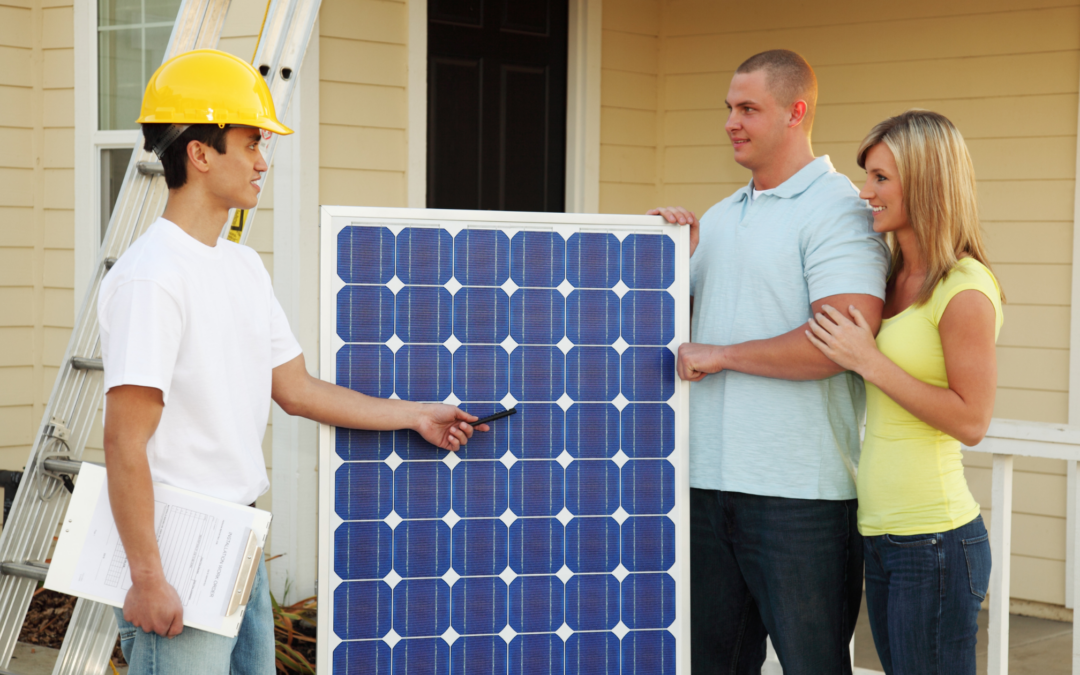Solar energy has emerged as one of the most promising renewable energy sources in recent years. As solar technology continues to improve in efficiency and decline in cost, it is becoming an increasingly attractive option for homes and businesses looking to reduce their environmental impact and energy bills. This article explores the benefits of solar power, how it works, costs and incentives, hiring a qualified installer, and why solar energy is worth considering.
What is Solar Energy?
Solar energy is one of the most abundant and renewable energy sources available. Solar energy comes directly from the sun by capturing sunlight and converting it into electricity through the use of solar panels. Solar energy is renewable, meaning it cannot be depleted like fossil fuels, and has far less impact on the environment. Shifting to solar power allows for less pollution, provides a personal source of energy separate from unstable power grids, saves on utility bills, increases home value, and more. With affordable installation and increasingly affordable equipment, solar panels are an eco-friendly way to power your home.
How Does Solar Energy Work?
There are two primary types of solar energy: solar thermal and photovoltaic. Solar thermal technology uses the sun’s heat to generate electricity or heat water or air. Photovoltaic technology converts the sun’s energy directly into electricity, typically using solar panels. Photovoltaic technology is what is most commonly used, so we will focus on solar energy generated from solar panels.
Solar energy is produced by capturing photons from sunlight and converting them into electricity. Solar photovoltaic (PV) panels contain solar cells made of silicon semiconductors that absorb sunlight and release electrons, creating an electric current. Inverters convert this direct current (DC) into alternating current (AC) and flow into your home’s electrical system. Any excess power not immediately used can be exported to the utility grid or saved into a solar battery for cloudy or rainy days.
Is Solar Right For Your Home?
The average home solar system is around 6 kW and requires about 400 square feet of roof space. Solar works best on properties with ample sun exposure, reasonable electricity demands, and owners interested in cutting utility bills over the long term. Start by reviewing last year’s electric expenses and scanning your roof and yard for sunshine. If your situation seems favorable, solar can slash your costs and carbon footprint.
The Benefits of Solar Energy
Solar energy offers many advantages, including:
- Clean energy generation that produces no greenhouse gas emissions.
- Reduced electricity bills since you can produce your own energy.
- Federal and local tax credits, rebates, and incentives to offset installation costs.
- Increased property value by adding an efficient and renewable energy system.
- Solar panels typically last 25-30 years.
- Minimal maintenance requirements.
- Energy independence and grid security by decentralizing the energy grid.
Costs, Incentives, and Financing
The cost of a solar panel system ranges greatly depending on system size, panels, inverters, labor, permitting fees, and equipment needs. According to the Solar Energy Industries Association (SEIA), the average cost is $2.64 per watt for residential systems [11]. For a typical 6 kW system, installation costs around $15,000-$25,000 before incentives. High-quality solar panels with better efficiency are generally more expensive, but they can produce more energy, which can offset the initial investment over time.
There are several options to finance solar panels:
- Cash purchase
- Solar loans
- Renting/solar leases
- Power purchase agreements
Planet Connection offers multiple financing options for homeowners.
There are many federal, state, and local incentives available to offset the initial investment of switching to solar. Homeowners should also consider the long-term savings and environmental benefits of investing in solar energy when evaluating the cost. The amount of money a homeowner can save can depend on things such as the size of the system, the local cost of electricity, and the amount of sunlight the system receives. However, in general, homeowners who switch to solar power can save a significant amount of money on their energy bills over the long term.
Some incentives include the federal solar Investment Tax Credit (ITC), net metering programs, Federal Renewable Energy Certificate (REC) programs, and local utility and state tax rebates, credits, and incentives.
With available savings, a solar system can pay for itself within 10 years.
Choosing the Right Solar Installer
It’s important to vet installers thoroughly, read reviews, ensure proper licensing and insurance, and compare quotes before choosing a solar panel company. A reputable installer like Planet Connection will be able to guide you every step of the way and accurately assess your home’s energy needs to provide a solar solution to meet them. They can guide you through permits and paperwork for installation, advise you on the best panel technology and equipment options for maximum efficiency, and offer maintenance and equipment guarantees/warranties in case of performance issues or defects. It’s also key to ask about their experience, certifications, past clients, safety practices, and if they employ NABCEP-certified solar installers.
Solar Panel Installation
Professional solar panel installation involves:
- Situational analysis and solar assessment of your home
- Designing and permitting the system with your local building department
- Installation of racking mounts or frames on the roof or ground
- Wiring connections between panels, inverters, electrical panels, and utility meters
- Programming, testing, and inspection of the entire system
- Ongoing system monitoring, maintenance, and repair as needed.
Proper solar panel installation is complex and best left to trained professionals. Mistakes can lead to suboptimal power production and safety hazards if wiring and electrical connections are improper.
Maximizing Energy Savings
To get the most return on investment from your solar panels, there are some key factors to consider:
- Prioritize energy efficiency first before going solar by upgrading appliances, sealing air leaks, and improving insulation.
- Install solar panels in optimal sun locations on south/west-facing roofs or open-ground installations.
- Ensure panels are kept clean and free of shade, dust, snow, and debris.
- Consider panel tilting angles and sun tracking mounts to boost sunlight capture.
- Maintain your solar panels by checking wiring connections, wear and tear, inverter operation, etc.
- Use monitoring software to track system performance and quickly address any production dips.
Environmental and Social Benefits
In addition to the personal energy and cost savings, solar energy also provides 93 million metric tons of avoided carbon emissions (equal to 20 million cars), jobs employing over 230,000 American workers in the solar industry, energy resilience and electricity access with community solar programs, and cleaner air and water by reducing fossil fuel dependence.
Solar energy is a smart long-term investment that provides renewable power right from your own rooftop or property. With solar panel costs decreasing and energy efficiency on the rise, solar energy systems are more affordable and accessible than ever. Do your part for the environment and your wallet by exploring solar options today. If you feel ready to explore solar, contact Planet Connection today for a zero-obligation site assessment. Discover just how bright solar could make your household and community. The abundant rays await – let’s put them to work.


Recent Comments